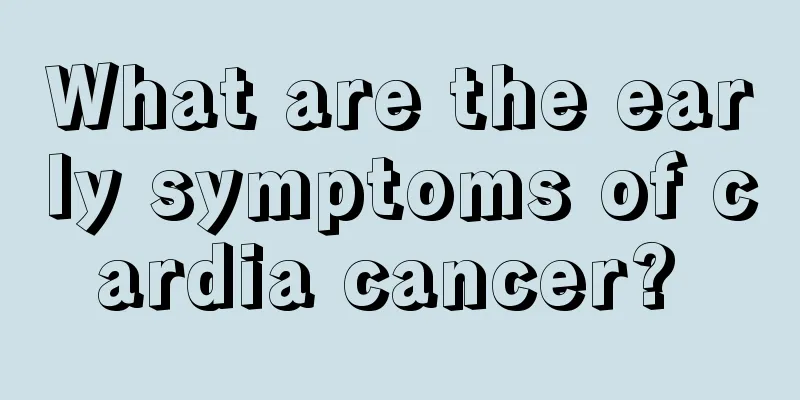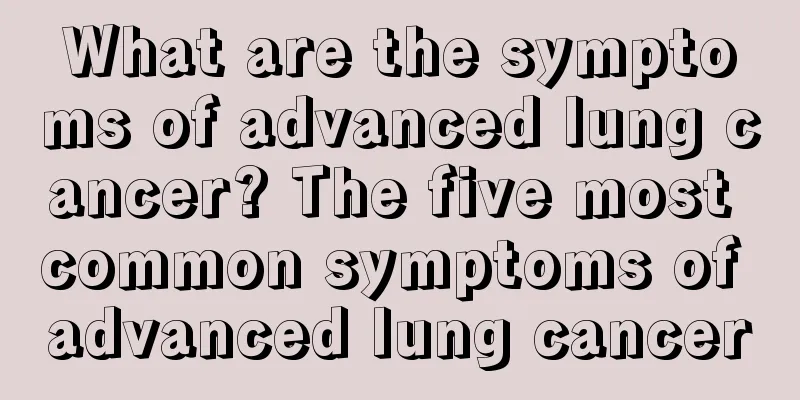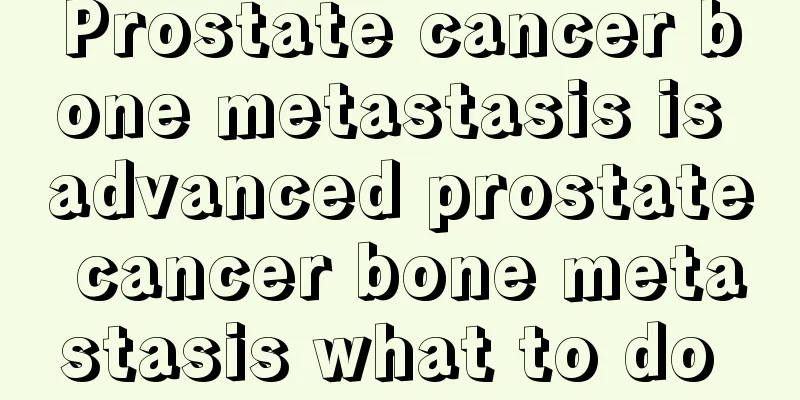What are the early symptoms of cardia cancer?

|
Like other tumors, the cause of cardia cancer is unknown. It may be related to dietary factors, environmental factors, genetic factors and Helicobacter pylori infection. In addition, there are precancerous changes such as chronic atrophic gastritis, gastric ulcer, gastric polyps, gastric mucosal epithelial cell metaplasia and gastric mucosal epithelial dysplasia. The early symptoms of cardia cancer are also very strange! There are two situations in which the early symptoms of cardia cancer appear: 1. If it occurs in the lower esophagus, the already narrow cardia will become narrower, so it is easy to have symptoms very similar to esophageal cancer; 2. If it occurs in the body of the stomach or the head of the stomach, there are generally no subjective symptoms in the early stage. In the early stage, there is a strange feeling or severe pain when food passes, or a slight heart pain. The above symptoms can be felt when swallowing, and when swallowing harder food, it feels like it is falling directly into the stomach. This is especially true when drinking hot or cold liquids, and the first mouthful is the most obvious. If you have cancer, once the above symptoms appear, they will always exist. Non-cancer patients with similar symptoms will have these symptoms that appear and disappear, not regularly, and with varying degrees of severity. Symptoms of worsening include difficulty swallowing, a heavy feeling in the abdomen, stomach pain, nausea, vomiting, and gradual weight loss. The symptoms of mid-stage cardiac cancer are between those of early and late stages, and are progressive. The most widely accepted view is that cardiac cancer originates from the cervical stem cells of the cardiac gland, which can form adenocarcinomas with characteristics of the cardiac or glandular epithelium due to their multidirectional differentiation potential. Most of the light microscopy, electron microscopy and histochemical studies of cardiac cancer have found that they are mixed types, which is a strong support for this view. Atypical hyperplasia is a precancerous lesion of cardiac cancer. It is also a key pathological process shared by the above-mentioned ulcers, polyps, and atrophic gastritis related to the onset of cardiac cancer. They may become cancerous only when they undergo atypical hyperplasia changes, and most of the colonic metaplasia has the nature of atypical hyperplasia. This is all about the early symptoms of cardia cancer. I hope the above content can help you. If you have other questions, please consult online experts! Cardiac cancer: http://www..com.cn/zhongliu/bma/ |
<<: Can malignant transformation of nevus cells cause melanoma?
>>: What are the early symptoms of melanoma
Recommend
How to do pathological sections
Clinically, there are many types of diseases. Som...
How many meters of blood vessels does a person have?
We all know that there are many blood vessels in ...
Stay away from colorectal cancer by changing your lifestyle
According to the colorectal cancer incidence data...
Butt crack itchy and peeling
The buttocks can be said to be the dirtiest part ...
What are the dangers of vascular nevus?
If the color of the vascular nevus is light red, ...
What is the best treatment for lung cancer? 4 methods are most effective in treating lung cancer
At present, surgery is a suitable treatment for l...
What are the nursing methods for lymphoma
In recent years, the incidence of lymphoma has be...
What to eat to prevent liver cancer? To prevent liver cancer, try eating more of these foods
Scientific research has found that drinking too m...
What should I do if I have multiple gallbladder polyps?
In recent years, there have been more and more re...
What should I do if I have a kidney mass?
The kidney is a very important organ in the body....
Genetic factors are very important in the etiology of colon cancer!
Colon cancer is a common tumor disease. The occur...
What's the matter with sudden stomachache and nausea
In our daily lives, we often encounter many emerg...
Why does thyroid cancer cause slow reaction?
Thyroid cancer is a common endocrine tumor in cli...
What does red bean and coix seed counteract
People who want to dehumidify can choose to cook ...
What is the reason for heavy breathing
Heavy breathing is a common symptom of respirator...









